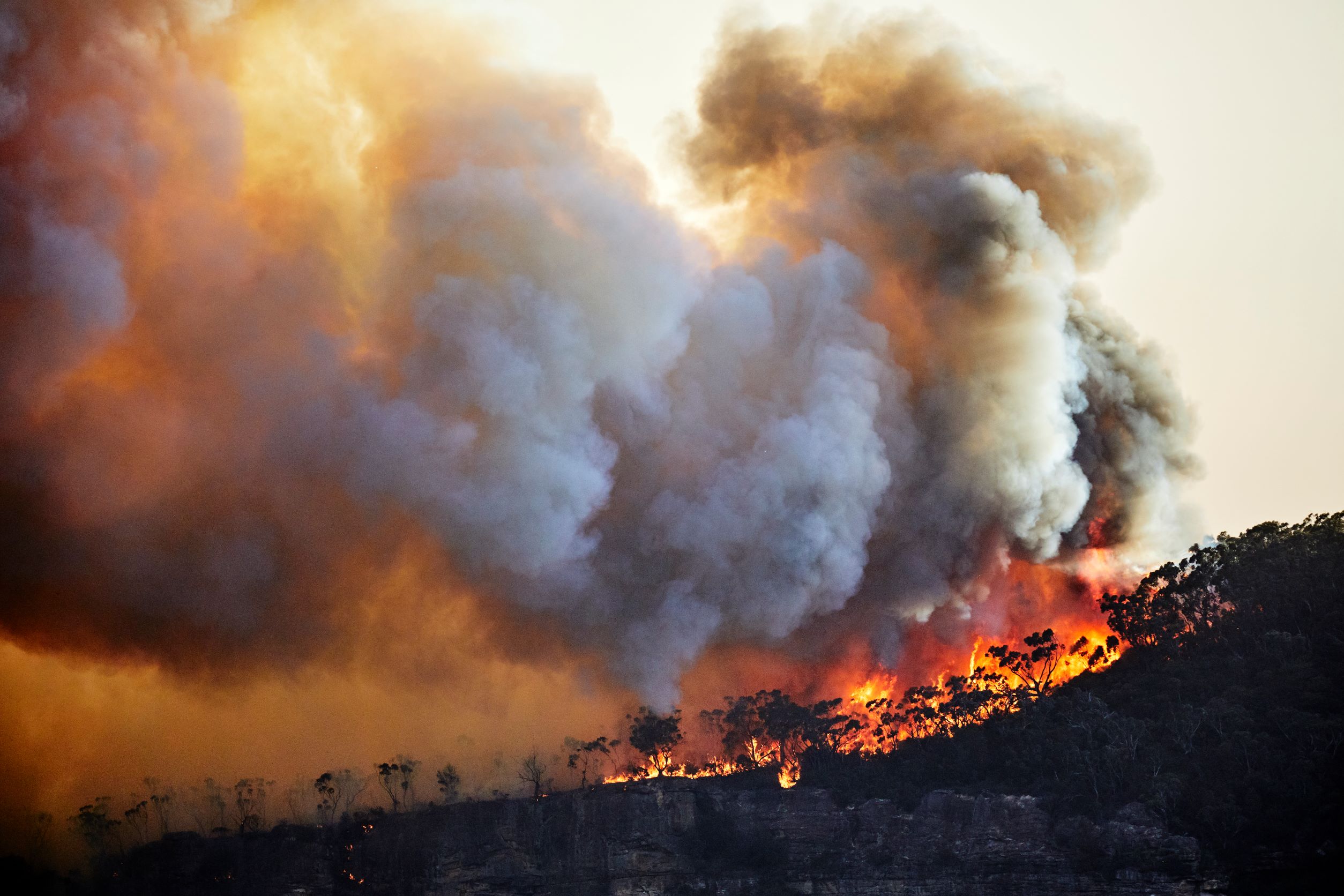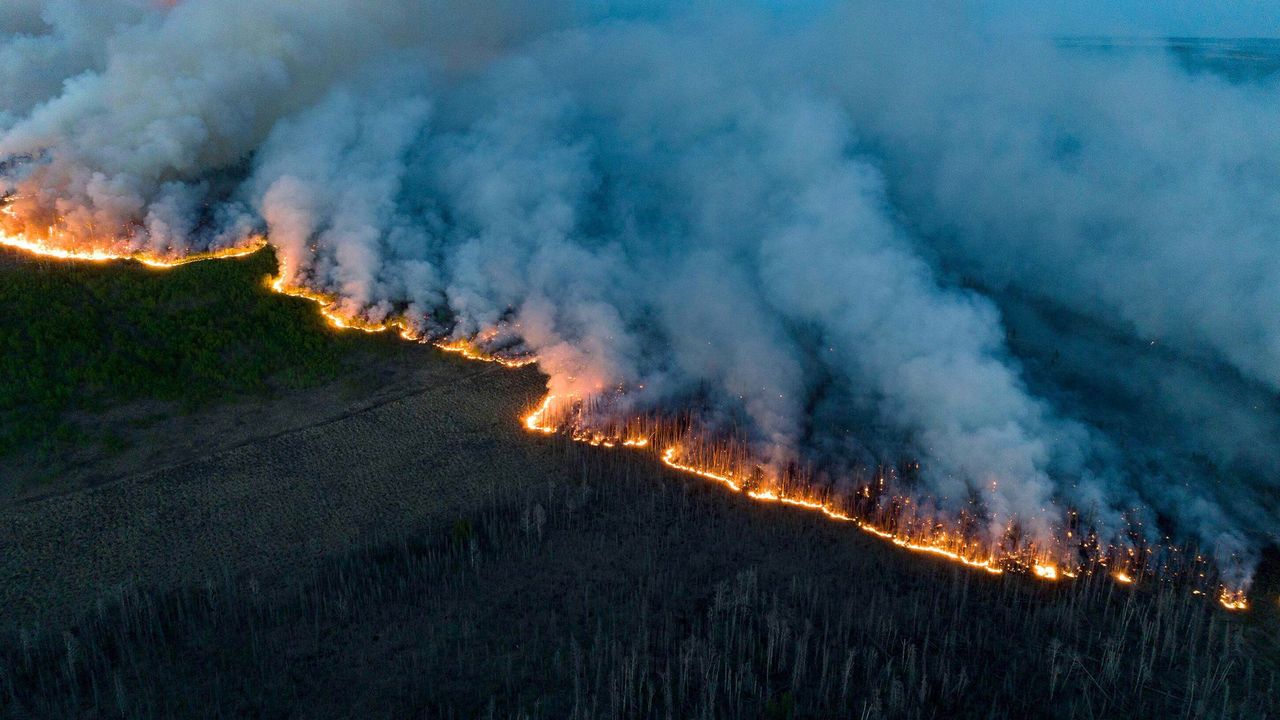On Wednesday, smoke from Canadian wildfires enveloped much of the Great Lakes region, causing air quality to reach unhealthy levels.
Chicago and Detroit were among the top three cities worldwide with the worst air quality, as reported by the tracking service IQAir.com.
The National Weather Service indicated that the ongoing Canadian wildfires are expected to continue affecting air quality in parts of the United States, including the upper and middle Mississippi Valley, the Great Lakes region, the western Ohio Valley, the central Appalachians, and the mid-Atlantic, for the next few days.
Poor air quality can result from various airborne irritants—particles or substances in the air that are harmful to breathe, according to Dr. Purvi Parikh, an allergist and immunologist at the Allergy & Asthma Network, an advocacy group for individuals with asthma, allergies, and related conditions.
Examples of these irritants include air pollution from vehicles, carbon emissions, and rising ozone levels. Natural events like wildfires often cause short-term increases in poor air quality as smoke, containing carbon monoxide and other hazardous chemicals, enters the atmosphere.
Particularly concerning are small particulate matter—tiny particles less than 2.5 micrometers in diameter, or about 4% of the width of a human hair. These particles are small enough to be inhaled deeply into the lungs and can enter the bloodstream.
For those who need to be outside, face masks such as disposable masks, KN95 masks, and N95 masks are recommended.
The Environmental Protection Agency (EPA) uses the air quality index (AQI) to report air quality, ranging from 0 to over 300, with levels of 50 and below considered healthy.
When levels exceed 150, the general population may begin to experience symptoms, and levels above 200 are categorized as “very unhealthy.”
Dr. Wynne Armand, a physician at Massachusetts General Hospital and associate director of the MGH Center for the Environment and Health, stated that many health issues related to poor air quality overlap with those caused by wildfire smoke.
Wildfire smoke can make breathing difficult for anyone but poses a higher risk for young children, older adults, pregnant women, and individuals with asthma or other pre-existing respiratory conditions.
Dr. Aida Capo, a pulmonologist at Hackensack Meridian Health in New Jersey, reported an increase in patients with exacerbated asthma or emphysema symptoms due to the poor air quality.
Short-term exposure to wildfire smoke can cause irritation of the eyes, nose, throat, and lungs, and may increase the risk of respiratory infections. Studies have shown that short-term exposure to small particulate matter can heighten the risk of various cardiovascular and respiratory diseases.
Long-term exposure to air pollution is associated with chronic health conditions such as:
- Severe asthma
- Preterm birth
- Heart disease
- Stroke
- Lung cancer
- Dementia
- Lower IQ in children

For pregnant women, smoke can be particularly dangerous due to reduced lung capacity from the growing abdomen. Exposure to air pollution during the first and second trimesters may also be linked to gestational diabetes.
Additionally, air pollution can harm a developing fetus, increasing the risk of low birth weight, miscarriage, and stillbirth. A global analysis estimated that air pollution likely contributed to nearly 6 million premature births in 2019.
While smoke itself is not an allergen, it can irritate the nasal passages and airways. Dr. Stokes Peebles, an allergy and pulmonary specialist at Vanderbilt University Medical Center, noted that if someone has allergies, smoke can exacerbate symptoms.
The impact can vary based on what is burning; for instance, smoke from burning trees or grass might trigger reactions in individuals sensitive to those allergens.
Additionally, heat can increase pollen levels and keep them airborne for extended periods, potentially spreading them over long distances. An N95 mask can help block these particles for those prone to environmental allergens.
Experts recommend checking air quality alerts regularly. The EPA’s website, AirNow.gov, allows people to track air quality by entering their ZIP codes, and many smartphone apps offer similar tracking services.
Brady Scott, a fellow at the American Association for Respiratory Care, advised staying indoors as much as possible and keeping doors and windows closed, including during exercise, which can stress the lungs.
Individuals with respiratory conditions, such as asthma, should closely monitor their symptoms and ensure their medications are up-to-date.
Dr. Capo suggested that people with asthma use their rescue inhalers 15 minutes before going outside. Dr. Parikh recommended maintaining good ventilation in homes and wearing masks like N95 when outside.
Dr. Armand advised against activities like dusting or mowing the lawn on days with poor air quality, and cautioned against burning candles or using gas stoves, as these can worsen indoor air quality.
Individuals should seek medical attention if they experience symptoms such as coughing, trouble breathing, chest pain, wheezing, or a whistling sound in the chest.
Indoor air filters can help reduce or remove pollutants, including small particulate matter from wildfire smoke.
Air filtration systems, including HVAC systems and portable air purifiers, can also help remove pollutants that have entered homes and other buildings.
Portable air cleaners with HEPA filters are effective at trapping small particulate matter (PM2.5). California’s Environmental Protection Agency recommends using indoor air cleaners when the AQI reaches “unhealthy” levels or when smoke is visible or detectable indoors.
DIY air cleaners, made by attaching a filter to a box fan, can also be effective, though they should be used as a temporary measure due to potential risks like overheating.
The EPA notes that while research on DIY air cleaners is limited, a study published in July 2021 found that low-cost filtration methods can significantly filter out submicron smoke particles and may reduce exposure to PM2.5 during wildfire events.
Poor air quality can also affect pets. Dr. Parikh noted that other mammals suffer from similar lung conditions as humans. Scott recommended keeping pets indoors as much as possible to avoid irritation to their respiratory systems.







Leave a Reply